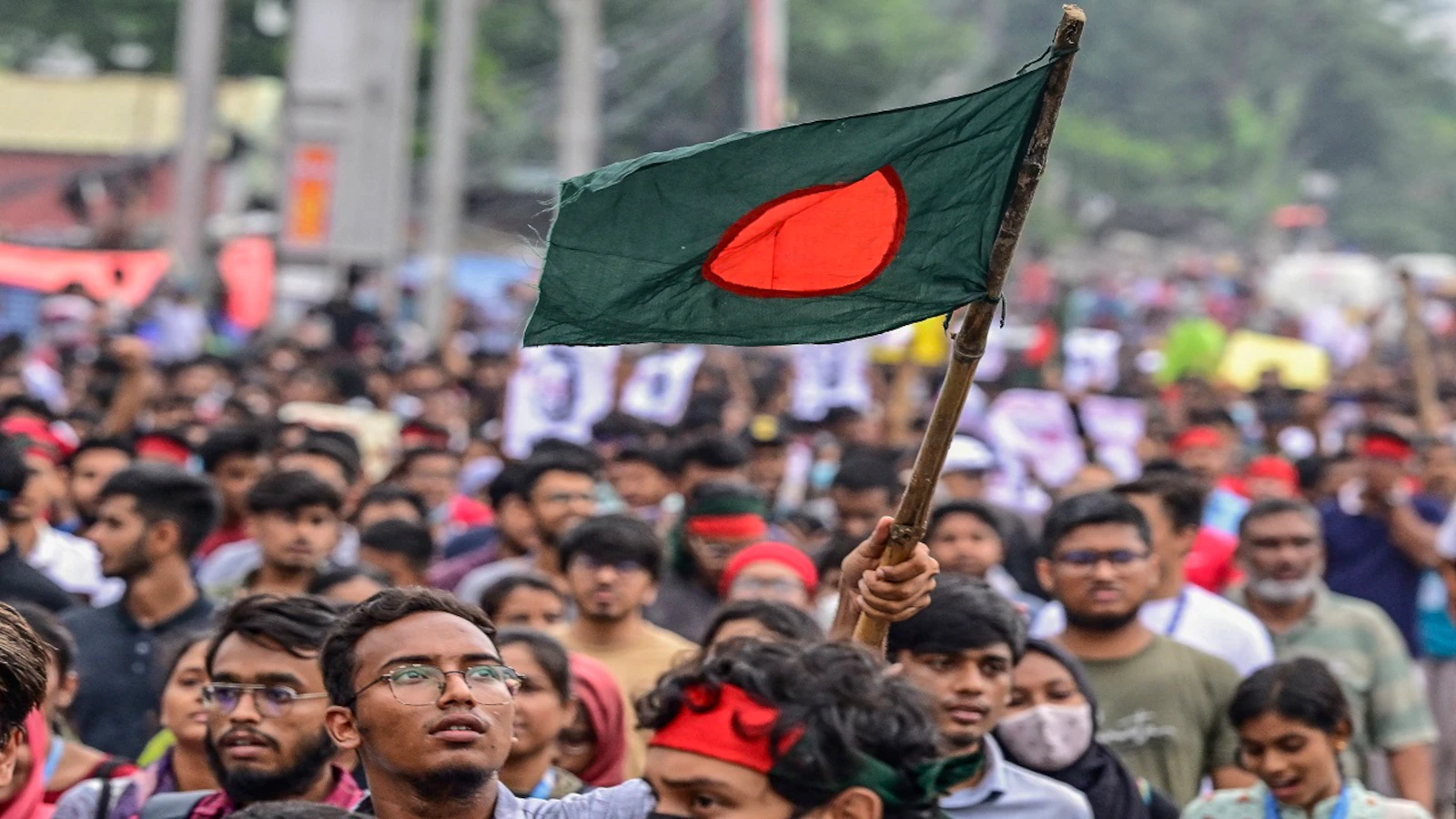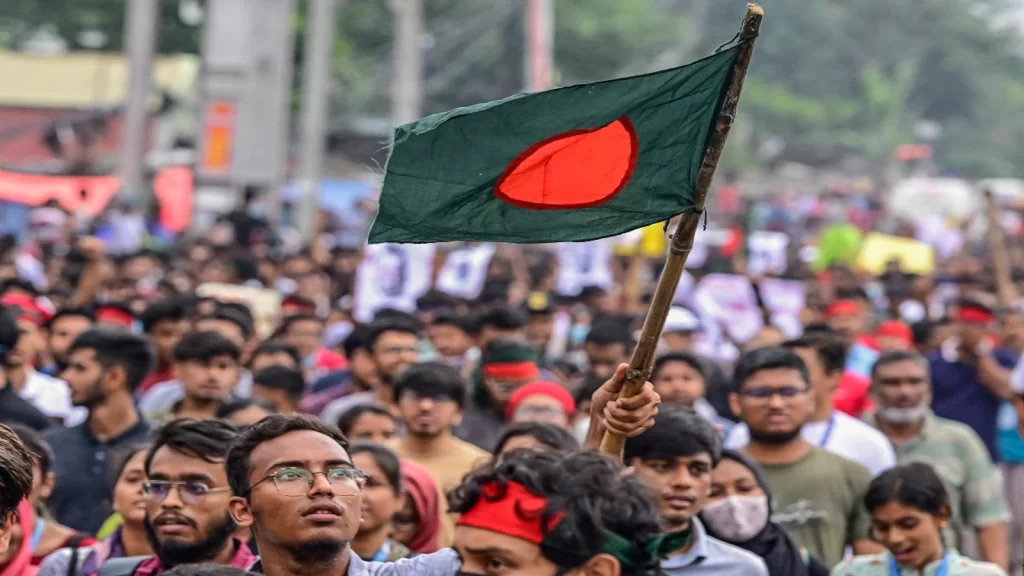
Sheikh Hasina, Prime Minister of Bangladesh, has resigned amid escalating protests, and the military is taking control of the government. Army Chief General Waker-Uz-Zaman announced the formation of an interim government and urged the protesters to maintain peace. The protests, which began over a contentious quota system, have resulted in significant unrest and violence.

Sheikh Hasina Steps Down, Army to Form Interim Government
The political crisis in Bangladesh has reached a boiling point with Prime Minister Sheikh Hasina stepping down from her position. The Army, led by General Waker-Uz-Zaman, is set to establish an interim government to restore order. In a statement, General Zaman assured the public of safety and urged protesters to halt the violence, promising to address their demands.
“We are facing a national crisis,” General Zaman stated. “After discussions with opposition leaders, we have decided to form an interim government. I take full responsibility for the nation’s security and pledge to protect your lives and property. Your concerns will be addressed, but we must move away from violence.”
Opposition and Civil Society Involvement
The decision to form an interim government was made in consultation with opposition leaders and civil society representatives. Notably, no members of the ruling Awami League were present at the meeting. Prime Minister Hasina, who began her fifth term earlier this year, has left Dhaka in a military aircraft and is reportedly headed to India with her sister, Sheikh Rehana.
Protests and Violent Clashes
The protests, initially sparked by a dispute over a quota system favoring descendants of freedom fighters, have rapidly intensified. Demonstrators have stormed the Prime Minister’s official residence, Gono Bhaban, and vandalized a statue of Sheikh Mujibur Rahman, Hasina’s father and a key figure in Bangladesh’s independence. The protests reflect a dramatic shift in the nation’s political landscape, with Mujibur Rahman’s legacy now seen as linked to Hasina’s controversial policies.
The quota system, which reserves 30% of government jobs for descendants of Muktijoddhas (freedom fighters), has been a contentious issue for years. Protesters argue that it benefits supporters of the Awami League and are calling for a merit-based system. In recent clashes, over 300 people have been killed, escalating public outrage.
Controversial Remarks and Supreme Court Involvement
Prime Minister Hasina’s remarks defending the quota system further fueled the protests. She questioned the protesters’ opposition, asking, “If not the grandchildren of the freedom fighters, then who will get quota benefits? The grandchildren of the ‘Razakars’?” This reference to the Razakars, a paramilitary force that committed atrocities during the 1971 liberation war, touched a raw nerve among the populace.
In 2018, a similar agitation led to the government reducing quotas for some positions. The latest unrest was triggered by a high court order that declared the 2018 government circular cancelling the 30% quota for freedom fighters’ descendants illegal. The Supreme Court later ruled that 93% of government jobs should be allocated based on merit, with the remaining reserved for relatives of freedom fighters. However, this decision failed to pacify the protesters.
Conclusion
The resignation of Prime Minister Sheikh Hasina and the subsequent military coup mark a significant turning point in Bangladesh’s political landscape. With the Army promising to address public grievances and restore order, the nation stands at a crossroads. The international community watches closely as Bangladesh navigates through this period of intense political upheaval.



